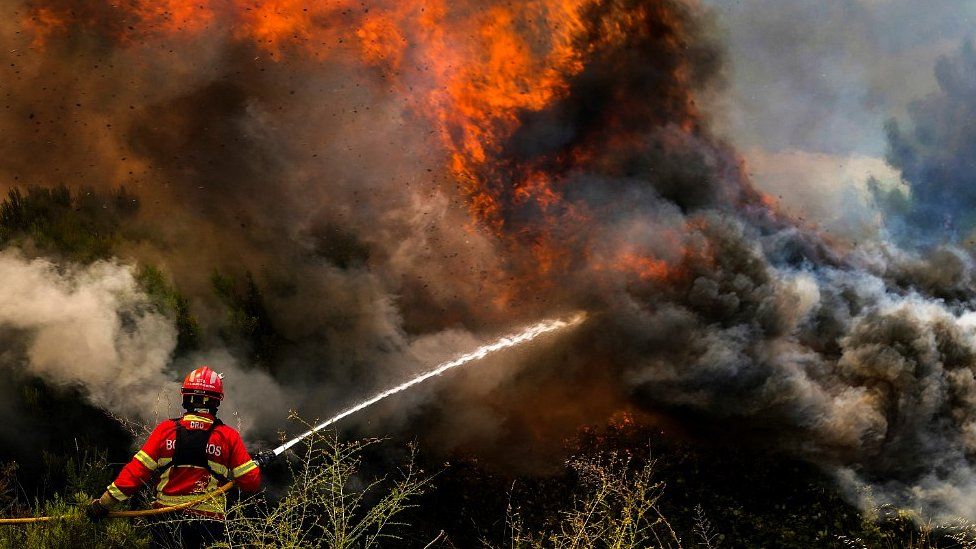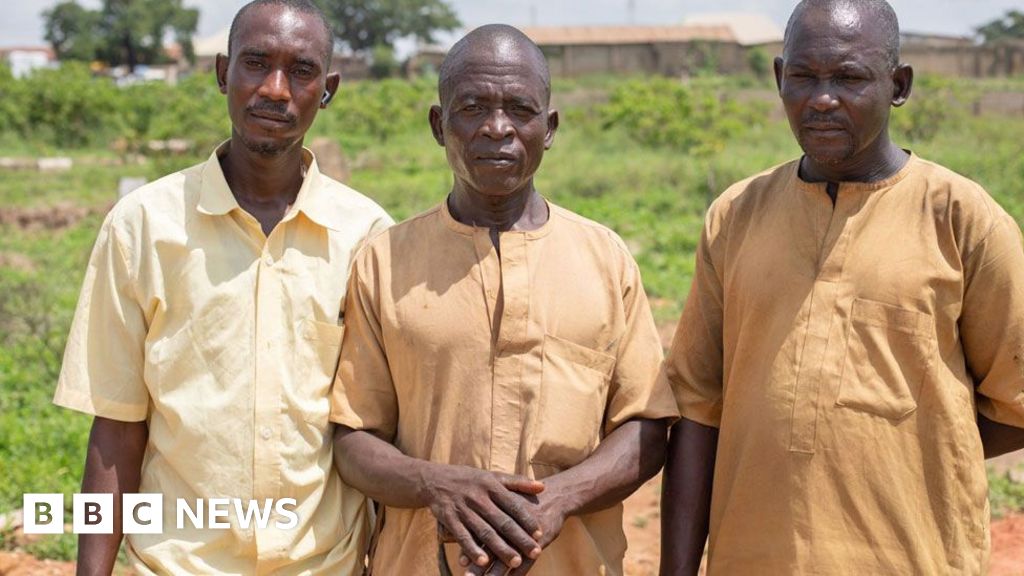ARTICLE AD BOX
By Laurence Peter
BBC News
 Image source, EPA
Image source, EPA
Baiao, Portugal: The fires in the north are Portugal's worst since 2017
Thousands of firefighters are battling wildfires in Portugal, Spain and southwestern France, in the grip of a heatwave that shows no sign of easing.
In northern Portugal, a pilot died when his waterbombing plane crashed in the Foz Coa area, near the Spanish border.
Fires are ravaging areas of France's Gironde region, where more than 11,000 people have been evacuated.
In southern Spain, near the Costa del Sol, about 2,300 people had to flee a wildfire spreading in the Mijas hills.
Holidaymakers on the beach in Torremolinos saw big plumes of smoke rising in the hills, where several aircraft were tackling the blaze.
The area is popular with tourists from the UK and elsewhere in northern Europe.
Since Tuesday, temperatures have soared to 47C in Portugal and above 40C in Spain, leaving the countryside bone dry and fuelling the fires. More than 300 people have died from the heat in both countries, Spain's Efe news agency reports.
The Portuguese pilot who died was flying solo in a Fire Boss amphibious plane.
Portugal's fire hotspots are in the north - east of the city of Porto. Fires have destroyed 30,000 hectares (75,000 acres) of land this year - the largest area since the summer of 2017, when Portugal suffered devastating fires in which some 100 people died.
Why is it so hot (in under 60 seconds)?
Other parts of the Mediterranean are affected too. In Italy, the government has declared a state of emergency in the desiccated Po Valley - the country's longest river is no more than a trickle in some places.
In northern Morocco, several villages had to be evacuated as fires swept through the Larache, Ouezzane, Taza and Tetouan provinces. One village was totally destroyed in Ksar El Kebir.
France has also had sweltering heat of about 40C and expects more next week, with 16 departments on orange alert, for severe weather.
The head of France's firefighters' federation has warned of the impact global warming is having on civil protection. "It's firefighters, civil security who deal with the effects on a daily basis - and these effects aren't in 2030, they're right now," said Grégory Allione.
Heatwaves have become more frequent, more intense, and last longer because of human-induced climate change. The world has already warmed by about 1.1C since the industrial era began and temperatures will keep rising unless governments around the world make steep cuts to carbon emissions.

 2 years ago
21
2 years ago
21








 English (US) ·
English (US) ·